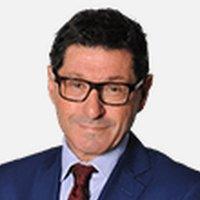US presidential debate: Trump and Biden square off in parallel universes
- Published
How will Trump or Biden win the debate? A look at their strengths and weaknesses
Just over a month to go and it is - at last - starting to feel like an election campaign.
Finally, we're on the road - to Cleveland, Ohio. And as well as the usual donuts and tepid coffee in the car, we now have hand sanitiser, sterilising wipes and face masks. Welcome to election 2020.
And at last, we're going to have a bit of the furniture familiar to all US elections these past 60 years - the first TV debate.
Donald Trump and Joe Biden mano a mano. Unarmed combat. Two pugilists with a combined age of 151, lacing up their gloves, each looking for a knockout blow - though probably neither quite able to float like a butterfly, nor sting like a bee.
TV debates rarely change the course of a US election - more often they act as a catalyst for trends that are already there. But just occasionally, they cause upsets.
In the first televised debate in 1960, John F Kennedy was the underdog against the wily and more experienced Richard Nixon. JFK, also had to overcome a lot of anti-Catholic prejudice. But on television, Kennedy looked suave and unflappable; Nixon sweaty and irascible. It turned the tide in JFK's favour, and he won the tightest of tight elections.
So what should we expect on Tuesday night in Cleveland? A game-changer, or confirmation of what we already know?
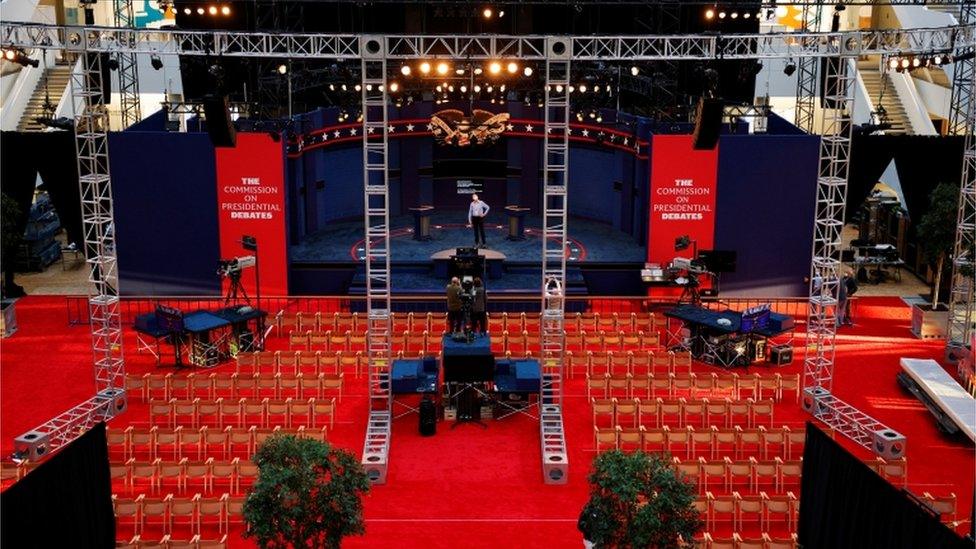
The stage is set in Ohio, literally not virtually, for the first debate clash
Arguably, Joe Biden's task has been made a bit easier by the Trump campaign setting the bar so low for him. They've said the former vice-president is not all there, he's a bit senile, no longer able to form sentences: the lights are on, but no one's at home.
It's certainly true that Biden at times does sound way off the pace and a little incoherent. He also, as a child, had a stammer which affects the way he speaks. But Donald Trump's sentences can also get lost in bewildering sub-clauses and strangled syntax. The Trump campaign's demand that Biden should undergo a blood test to ensure he isn't taking performance-enhancing drugs, has, you won't be surprised to learn, been given short shrift by team Joe.
There will be an element of the debate that the French would call "un dialogue de sourds" - a conversation of the deaf. In other words, they will not be listening to each other.
So Donald Trump will want to focus on his economic achievements before the pandemic struck, he will want to attack the Biden family, and in particular his son, Hunter and how he ended up on the board of a Ukrainian energy company when Joe Biden was vice-president (we know from previous debate performances that Donald Trump will go in all guns blazing).
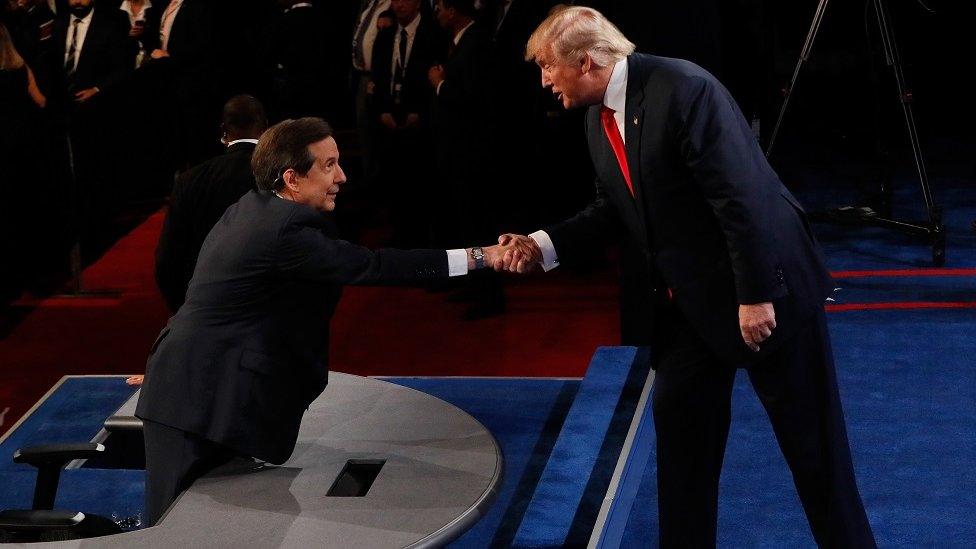
Chris Wallace and Donald Trump will be reunited
Biden will want to concentrate on the president's handling of the pandemic, and no doubt the gap between what Donald Trump told the journalist Bob Woodward and what he told the American people.
Or to give another example, what about the unrest that has swept America since the killing of George Floyd and Breonna Taylor? If past form is anything to go by, the president will focus on law and order, the suburbs at risk, the left-wing mobs burning and looting. Biden will talk about racial injustice, the need for healing. Each will have their own reality. Each will be in a parallel universe.
The job of forcing the two candidates to address each other's talking points will fall to the debate moderator, Chris Wallace from Fox News.
He is formidable: sharp, well-briefed and will cut through the pre-rehearsed soundbites from the candidates. That should keep them on their toes.
A list of topics has been disclosed. But as of the last 24 hours, there is a new subject- and it could, perhaps, become a central issue - and that is Donald Trump's taxes - that he only paid $750 income tax in his first year in office at the White House, that he has personal debts of over $400 million (who does he owe the money to?); that $70,000 was written off to pay for hairdressing before TV appearances. That is one expensive haircut.


Hillary Clinton tried to corner Trump on this subject four years ago, upbraiding him for paying little or no federal taxes - but "that makes me smart", the billionaire tycoon responded. His supporters lapped it up. But then he was the outsider businessman; now he's the president, and still only paying $750 in a year? That might resonate a little more this time around.
This might seem a counter-intuitive thing to say, but though Biden has been in politics for decades, he is to some extent the unknown quantity in this debate. At the beginning of this year, in the primaries pre-Covid, he was a lacklustre candidate - and that is being charitable.
After lockdown he repaired to his basement in Wilmington and hasn't come out much since then. Donald Trump, on the other hand, is ubiquitous with daily rallies, speeches, news conferences - who can name the last 24-hour period where Donald Trump wasn't on camera?
But that, in a sense, is the choice for the American people. Donald Trump the noisy, aggressive fighter; or Joe Biden the quieter, calmer, amiable old boy.
- Published28 September 2020
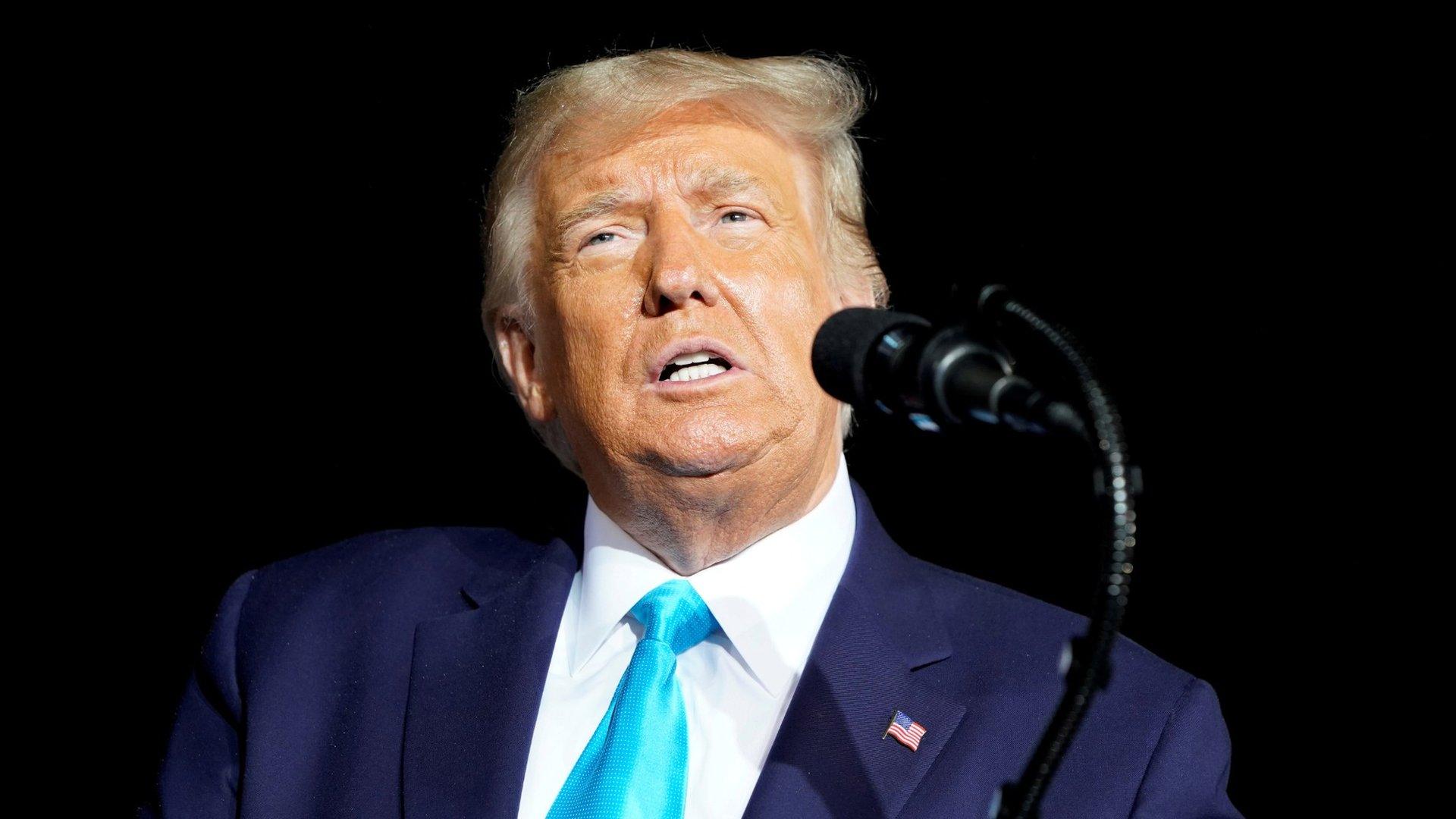
- Published27 August 2020
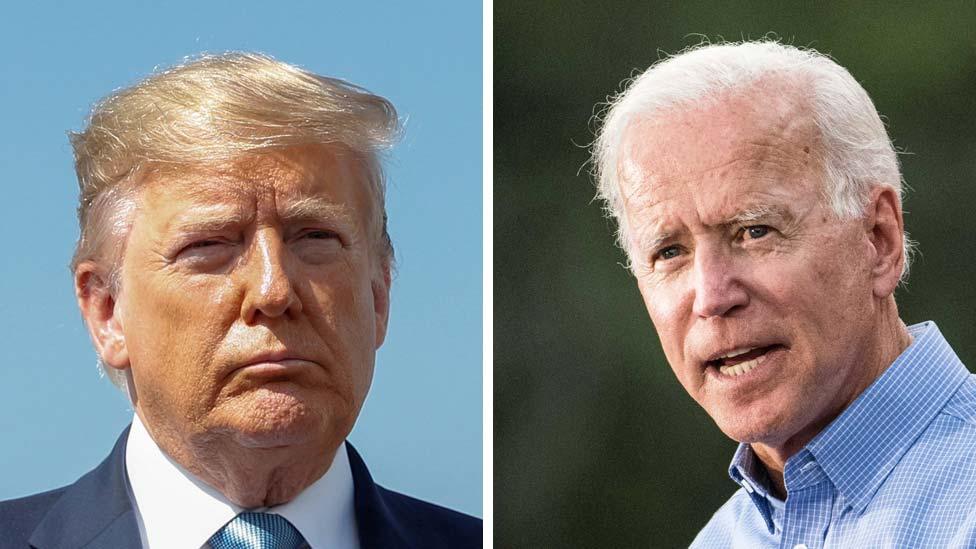
- Published27 July 2020
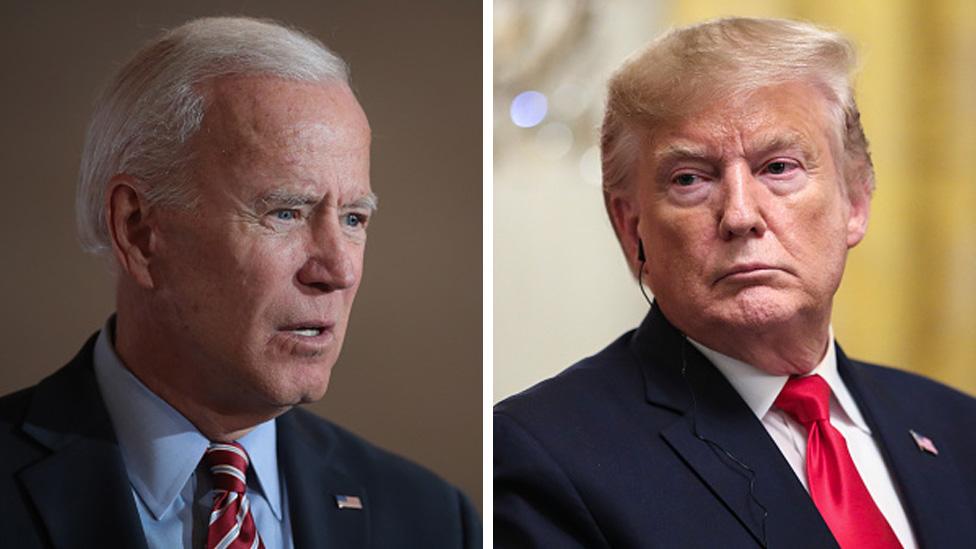
- Published22 September 2020
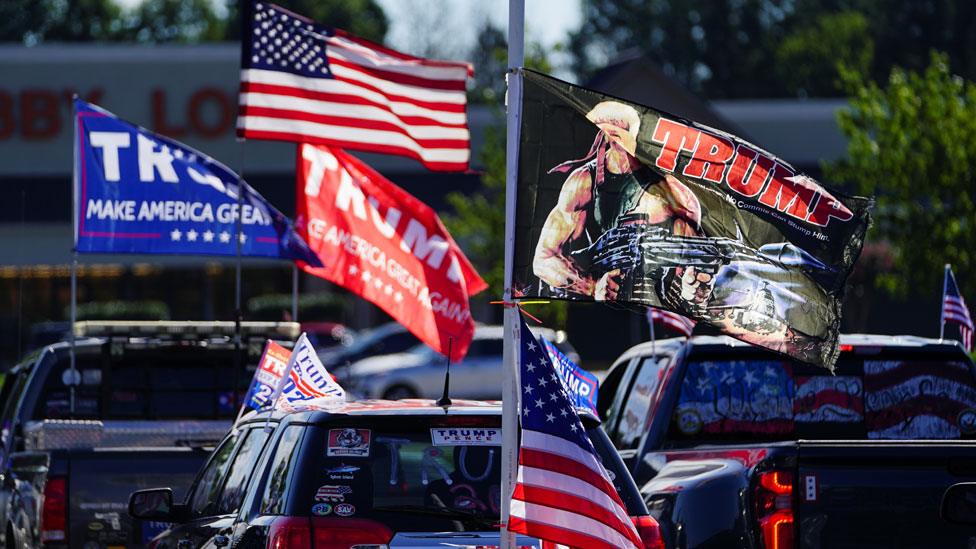
- Published9 April 2020
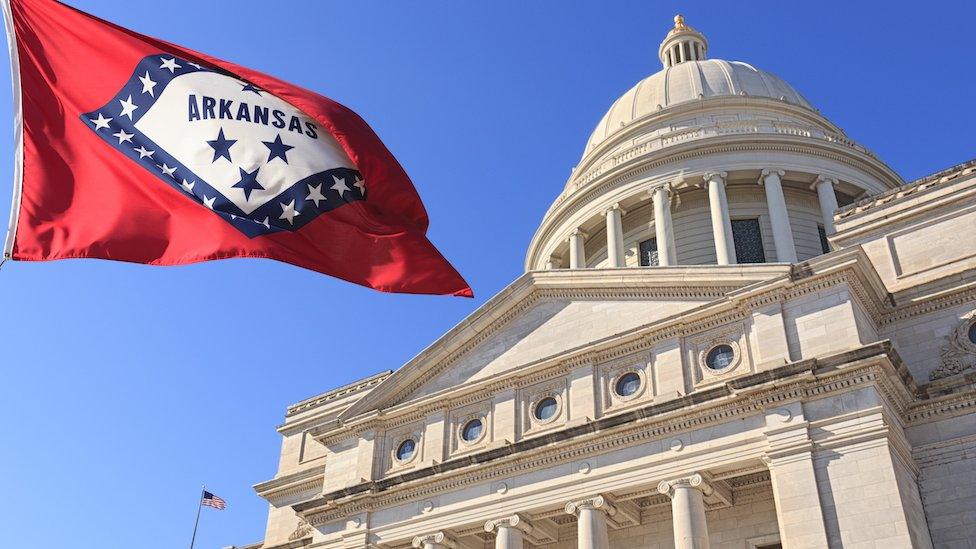
- Published2 April 2020
